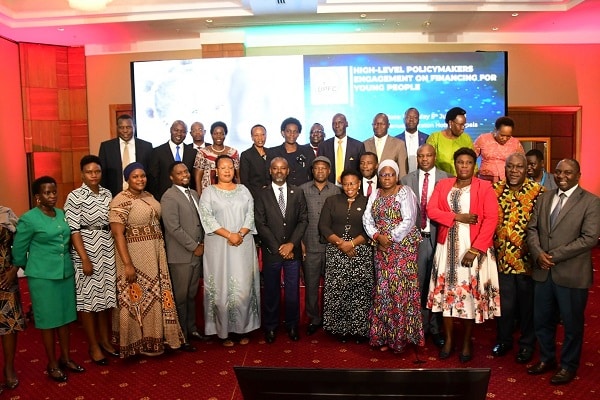
By Adiga Julius
The Deputy Speaker of Parliament Thomas Tayebwa has proposed to the Government to block all pornographic websites to stop the surge in children seeing adult material.
Tayebwa made the proposal on Wednesday while officiating the policymakers’ engagement summit on financing for young people, organized by the Uganda Parliamentary Forum for Children (UPFC) in Kampala.
The Deputy Speaker explained that currently children are being exposed to cartoons of violence, while teens are exposed to pornography, a situation that must be dealt with to save children from immoralities.
He rallied the Minister of Youth and Children, Sarah Nyirabashitsi Mateke to liaise with other agencies including the Ministry of ICT and National Guidance to borrow from Muslim countries that have successfully blocked access to pornographic sites to underage children.
Tayebwa also urged parents to go back to the African belief that “a child is brought up by the community”.
But Mateke decried the lack of funds in her Ministry citing only 20 million that was allocated during the current Financial Year 2023/2024 to tackle the removal of street children across the country.
The Chairperson of Uganda Parliamentary Forum for Children, Margaret Makhoha, the country has no single budget for child protection, but rather allocations are subsumed in various programs, sub-programs, and activities across the different government Ministries, Departments, and Agencies – MDAs.
Makhoha explained that the multi-agency nature of child protection is an obstacle to the emergence of coherent, integrated child protection systems, and an even greater obstacle to developing management information systems for child protection.
In Uganda, most children have experienced some form of violence and abuse. More than 8 million children are considered to be vulnerable to harm. Sexual abuse is the most common form of violence, with gender as a major risk factor. Every day, around 26 girls are defiled.
Article 34 (4) of the Constitution protects children from social or economic exploitation. A child shall not be employed in or required to perform work that is likely to be hazardous or interfere with their education or be harmful to their health.




